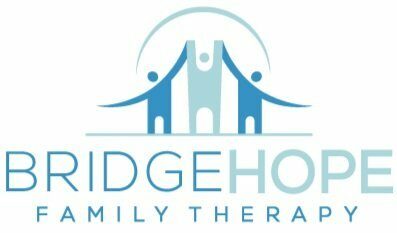Are your religious experiences a source of unexpected wounds? While your engagement with your religion may have been uplifting and personally enriching for years, hidden beneath the surface could be a world of pain, guilt, and shame. You might find yourself grappling with traumatic events or damaging messages from your religious past, struggling with flashbacks and nightmares. These silent struggles often go unaddressed due to cultural barriers against openly discussing faith-related trauma. If this sounds familiar, know that you’re not alone. At this point, you might now want to learn more about what therapy for religious trauma could look like, or maybe you’re seeking an expert religious trauma therapist. If either of these rings true, keep reading.
Religious trauma is complex and encompasses various situations within your religious or spiritual environment that can result in symptoms of trauma. Perhaps you’re right now grappling with intense self-doubt, shame, anxiety, or identity crises due to damaging religious teachings. Maybe you’ve endured physical or sexual abuse within your religious community. Within your religious context, such abuse might have even been accompanied by religious indoctrination that justified or sanctioned mistreatment, causing you deep psychological distress.

The pressure to conform to religious norms can amplify this trauma, leading you to endure abuse in silence to protect the reputation of your religious community or meet family expectations.
Adding to this complexity, you might have sought help within your religious framework, only to face dismissal, blame, or admonishment, intensifying your trauma and creating barriers to seeking validation or support. The pressure to conform to religious norms can amplify this trauma, leading you to endure abuse in silence to protect the reputation of your religious community or meet family expectations. This cycle of silence and suffering can leave you feeling trapped, unable to escape harmful situations. As you can see, religious trauma is a complex issue with multiple nuances, encompassing a range of experiences and internalized beliefs. Working through such trauma can be difficult, and seeking the help of a professional can be transformative.
Therapy for religious trauma
Religious trauma therapy is a specialized form of mental health support aimed at helping you navigate and heal from the negative impacts of your religious experiences. It provides a safe and understanding space for you to explore your beliefs, experiences, and emotions without fear of judgment or dismissal. Unlike traditional therapy approaches that may overlook the unique challenges of religious trauma, religious trauma therapy acknowledges the complexity of these experiences. Therapists personalize interventions to address them effectively, recognizing and validating the impact of religious teachings and experiences on your mental health.
In religious trauma therapy, you are encouraged to examine and challenge harmful beliefs, cope with distressing emotions, and develop healthier coping mechanisms. The therapeutic process is collaborative, empowering you to reclaim your autonomy and make choices that align with your values and well-being. Through this process, you can experience profound healing and transformation, gaining a deeper understanding of yourself, your experiences, and your relationships. Ultimately, religious trauma therapy is not about pushing you toward or away from religion. Instead, it focuses on promoting healing, resilience, and personal growth in the context of your religious or spiritual experiences. It offers a pathway to freedom from the lingering effects of religious trauma, allowing you to live more authentically and fully.
What are the Benefits of Religious Trauma Therapy?
Religious trauma therapy offers a host of benefits for individuals dealing with the lingering effects of religious trauma. Below are some of the benefits you can experience:
-
Validation and Understanding: A significant benefit of religious trauma therapy is that it helps you feel heard, validated, and understood. This validation can be immensely transformative, assisting you in feeling less alone and more empowered to confront your trauma.
-
Healing Traumatic Wounds: Religious trauma therapy equips you with tools and strategies to process and heal from traumatic wounds. Therapists address symptoms such as anxiety, depression, intrusive thoughts, flashbacks, and emotional triggers related to your trauma, leading to a sense of relief, resolution, and emotional freedom.
-
Challenging Harmful Beliefs: A core aspect of religious trauma therapy involves challenging harmful beliefs that you may have internalized due to religious teachings or experiences. Therapists help you develop a healthy relationship with your beliefs, examining and reframing negative beliefs about yourself, your worth, and your identity.
-
Building Resilience: Religious trauma therapists teach you effective coping skills and strategies for emotional regulation, helping you navigate triggers, manage distressing emotions, and cultivate self-care practices. This resilience-building process empowers you to cope with future challenges and setbacks more effectively.
-
Empowering Autonomy: Through religious trauma therapy, you regain a sense of autonomy and agency over your life. Therapists support you in making choices that align with your values, goals, and personal growth, leading to improved self-confidence and self-determination.
-
Improving Relationships: Addressing religious trauma often leads to significant improvement in your relationships. You become more comfortable being authentic and setting appropriate boundaries, resulting in closer connections with family, friends, and community members.
Overall, the benefits of religious trauma therapy extend far beyond symptom relief. It offers personalized healing, growth, and self-discovery, empowering you to reclaim your life and thrive.
What to Expect from Religious Trauma Therapy Sessions
During religious trauma therapy, you can anticipate finding yourself in a supportive and empathetic environment where you can explore your beliefs, emotions, and experiences without judgment. Sessions typically begin with a discussion of your goals, concerns, and the difficulties you experience. Therapists then work collaboratively with you to establish a personalized treatment plan that addresses your unique needs and challenges.
Depending on your symptoms and goals, a therapist might utilize interventions from Cognitive Processing Therapy (CPT) or Eye Movement Desensitization and Reprocessing (EMDR) to help you process your memories, heal from trauma symptoms such as nightmares and flashbacks, and cope effectively. At times, you might have to tackle your memories head-on, while at other times, processing through your beliefs and emotions will be the best course of action. As mentioned before, much of the treatment depends on you, your preferences, and your unique circumstances and symptoms.
Regardless of the specifics, you can expect that a good religious trauma therapist will work with you on your goals and help you live a meaningful and fulfilling life that aligns with what matters most to you.
Where Can I Find an Expert Religious Trauma Therapist?
Finding a great therapist can be quite challenging. However, if you’ve come across this blog post, you’re in luck!

Picture of Dr. Dominic Schmuck, Licensed Psychologist
You can reach out to Dr. Dominic Schmuck at TruU Psychology, who specializes in religious trauma treatment. Taking the step to seek therapy can be daunting, but it might be the best decision you make right now.
Some individuals dealing with religious trauma prefer to know their therapist’s religious identity. While the religious identity of a good therapist won’t affect therapy, for transparency, note that Dr. Stucki is an active participant in the Church of Jesus Christ of Latter-day Saints, while Dr. Dominic Schmuck is agnostic with past involvement in the LDS faith. Both Dr. Stucki and Dr. Schmuck respect all religious views and will make you feel valued and heard. In their personal lives, they prioritize individuals finding their own paths and developing a healthy relationship with their religiosity, spirituality, or overall way of life.
You can contact Dr. Schmuck via email at dominic@truupsychology.com or by phone at 385-200-0204.
Start your healing journey for religious trauma with Dr. Schmuck today!





